Period shame suppresses our human rights!
Have you ever felt ashamed about asking for a tampon or a pad in public? We’ve all been there. You’re out enjoying your life, hanging out with a group of friends, or even just praying for the energy to stay awake during class, and the all too familiar stabbing pain pulsates through your lower belly. “Oh no…Not now. Not today. I don’t have a tampon; there are boys here; what if I’ve already bled through?” One of the most important parts of being a person who bleeds is the empathy we all have for each other’s experience. I see you girl who bled through her white dress at a birthday party. I hear your cries of pain and love you in your struggles not only to get through a day but to pretend it’s not happening for the comfort of others!
The idea that periods are taboo, disgusting, or unsanitary is out, and any person who still thinks this way must be challenged. People who shame periods need to be called out by all the people around them, and told why what they are doing is harmful! In South Africa, access to education is lower for girls than for boys, partly due to the lack of access to basic water and sanitation facilities. How can girls, or people who bleed, deal with their periods if there aren’t toilets with running water or bins? Girls will also often miss a week of school every month because of lack of access to sanitary products and treatments for irregular periods.
Period poverty
A Unicef article states that worldwide there are about 1.8 billion girls, women, intersex people and trans men who bleed currently. Not all of these people have equal access to dignified and healthy menstrual health management. 51.1% of South Africa’s population are female, most of whom will bleed at some point in their life. According to Project Dignity, of the 7 million South African school girls who currently are of age to begin menstruation, 4 million of them do not have access to sanitary products. Students also struggle with inadequate sanitation facilities at schools. South Africans are suffering from a lack of access to menstrual health. Recently in Scotland, the government made all sanitary products free in order to combat period poverty. Similar provisions need to be made by our government to ensure all girls and people who bleed can go to school and don’t fall behind in their learning. But we still need to bridge the gap in access to medical treatments experienced by young girls and people who bleed in South Africa. One way of doing this could be to better use our extensive traditional medicine network.
Traditional healers can help!
Did you know that 80% of black South Africans use traditional medicine to get their medical needs met. The South African study found that there are more traditional healers available to people than western-medicine-trained doctors, and their solutions are often more affordable and personalised! Traditional medicines use indigenous (or sometimes introduced) plants, and rely on inherited knowledge of elderly folk in rural areas, as well as that of inyangas or isangomas (isiZulu), ixwele (isiXhosa), nqaka (Sesotho) and nanga (Vhavenda) of how to prepare the plants, which plants go with which issue, and – very importantly – which plants are safe to use. Some plants can be toxic and it is important to visit a trusted traditional healer, and know that they are not over-harvesting plants from the wild, which may lead to species extinction. We can use traditional remedies for many issues related to menstrual health, including contraception, irregular menstruation, period pains, long periods, or even the lack of a period. Work is being done in collaboration with the World Health Organisation to institutionalise traditional medicines, or, in other words, to document the plants used and best practices for safely administering them and harvesting them from the wild.
Our diverse indigenous pharmacy
Many people don’t even know what plant their food comes from, let alone what plants in the world around them can help with flu, infertility, or menstrual cramps! The plants used to treat ailments are different across the country, and luckily we have many to choose from and a wealth of knowledge to access through traditional healers. A study in 2003 showed there are up to 136 plant species used to treat gynaecological issues in South Africa! By now, we probably know of more. Although there has been an increase in the amount of documentation of traditional medicinal practices in South Africa, much more research and documentation needs to be done to prevent the loss of this information and to publish this knowledge for people outside of science and traditional medicine to access. Although we should be getting more support from the government to combat this issue, we, as people who bleed, need to empower ourselves to navigate period poverty in South Africa, as well as to end the stigma about discussing periods openly! Try researching medicinal plants on PlantZAfrica, or using the iNaturalist app to identify plants and find out where they grow, or speaking to traditional healers about common problems you have with your period. You can also track your period, on an app or on a calendar to be better prepared for each bleed. Look at the QrateZA website to organise an educational workshop on menstrual health for your school and to read blog posts. Also contact Project Dignity to learn more about how they distribute reusable sanitary products to schools in South Africa.
***
Tell us: Have you or your friends experienced shaming because of your periods? How do you think we can combat period poverty in South Africa?
Read more here on what it means to be ‘normal’.



